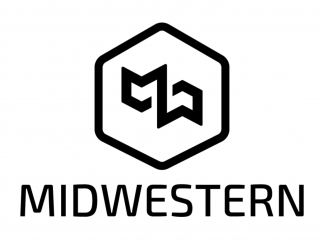
By Kenneth Surbrugg, Director of the Center of Entrepreneurship at Missouri Southern State University
The topic of entrepreneurial ecosystems has come up quite a bit over the last few months, bringing up some obvious questions: What is an entrepreneurial ecosystem? Why is it important to this area?
To better understand this, we need to start with a common understanding of entrepreneurial ecosystems. An ecosystem is a community that lives and interacts with each other in a specific environment. An entrepreneur is a person who organizes and operates a business and takes on the risk of operating that business for profit. Therefore, an entrepreneurial ecosystem is a community of entrepreneurs who interact with each other in order to encourage, develop, and grow their ideas or their existing businesses.
But what does an entrepreneurial ecosystem include? Every entrepreneurial ecosystem is going to be a bit different, but there are some common components within each entrepreneurial ecosystem. A strong ecosystem has resource providers, educational opportunities, advocates, sources of risk capital, and idea creators. What this looks like in southwest Missouri is different than what it would look like in Kansas City or St. Louis. The important point is that entrepreneurs that are in the ecosystem, and those entrepreneurs looking to join, have easy access to these components. That does not mean free but accessible.
Resource providers are just that — entities that can provide resources to assist an entrepreneur. For example, if an entrepreneur needs assistance with figuring out their legal entity, there are resource providers out there that can assist these entrepreneurs. Again, these resources many not be free, but entrepreneurs should have access to these resource providers.
Educational opportunities exist to help the entrepreneur better understand the business environment and how to capture value within the marketplace. This can include taking classes at a college or university or signing up for specific business training workshops. These educational opportunities may cost money, but those within the ecosystem and those looking to join can take advantage of these educational opportunities.
Advocates are those entities and individuals who support the entrepreneurs and communicate what is going on within the ecosystem to the rest of the community or region. These advocates help tell the story of the entrepreneurial ecosystem in order to help grow the ecosystem.
Sources of risk capital must also be present in order to maintain and grow this entrepreneurial ecosystem. This can include conventional and unconventional sources of capital. Those that are within the ecosystem must be aware of these possibilities in order to launch and/or grow their business.
Idea creators are the entrepreneurs, as well as mentors, who help clarify ideas into opportunities. There has to be an idea before you can have the business. Idea creators work with advocates to help form and share the entrepreneurial ecosystem story.
However, there is a catch to the idea of an entrepreneurial ecosystem. The ecosystem has to function as a system and components within the ecosystem cannot compete with each other. Nobody owns this ecosystem — it organically forms and shares itself. Once formed, it can grow by adding other entrepreneurs and components into the ecosystem. There are no monetary dues to become a member, but those within the ecosystem must be willing to share their story to encourage its members and grow the entrepreneurial community. It’s one thing to say that you are a member of the entrepreneurial ecosystem, its another to be actively engaged in that ecosystem. It thrives and grows with actively engaged members.
There are several reasons why this is important. First, small businesses are important to our economy. From restaurants to boutique shops to various service providers, small businesses provide unique, quality experiences for an area. Second, small businesses help support larger organizations. There are many larger organizations, as well as state and federal governments, that rely on the products and services of small businesses. And these small businesses are innovative and new businesses help encourage further innovation and business creation.
Small businesses create jobs. Small businesses help meet the needs and wants of underserviced markets. Having a vibrant and growing entrepreneurial culture within a community will naturally happen if the community has a growing, diverse, and cooperating entrepreneurial ecosystem.








Be the first to comment